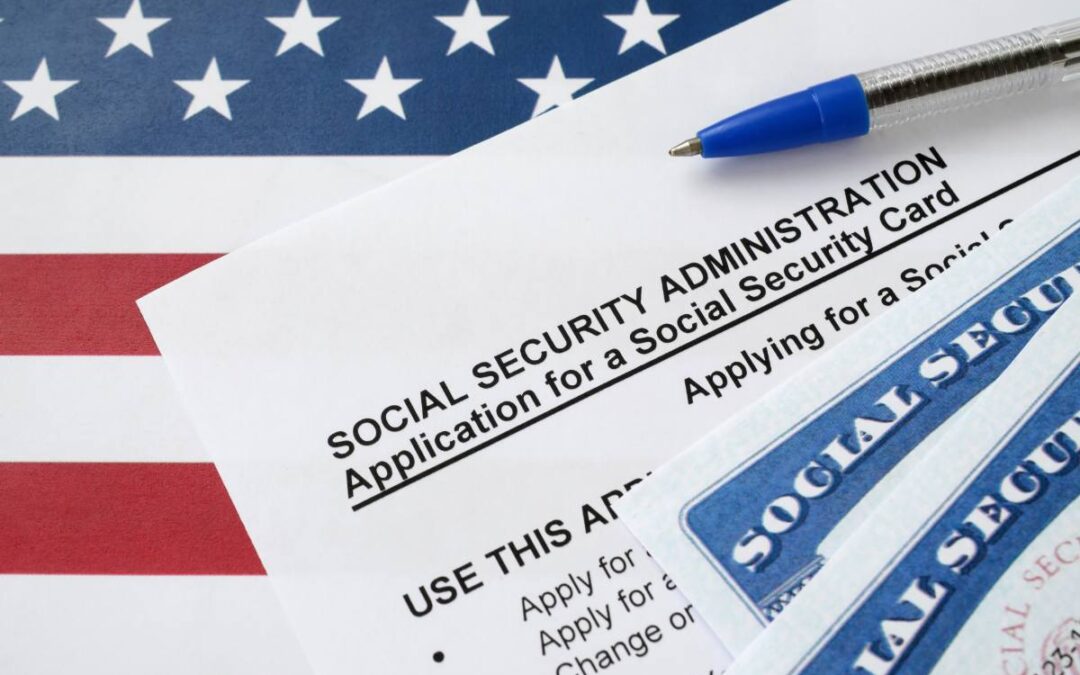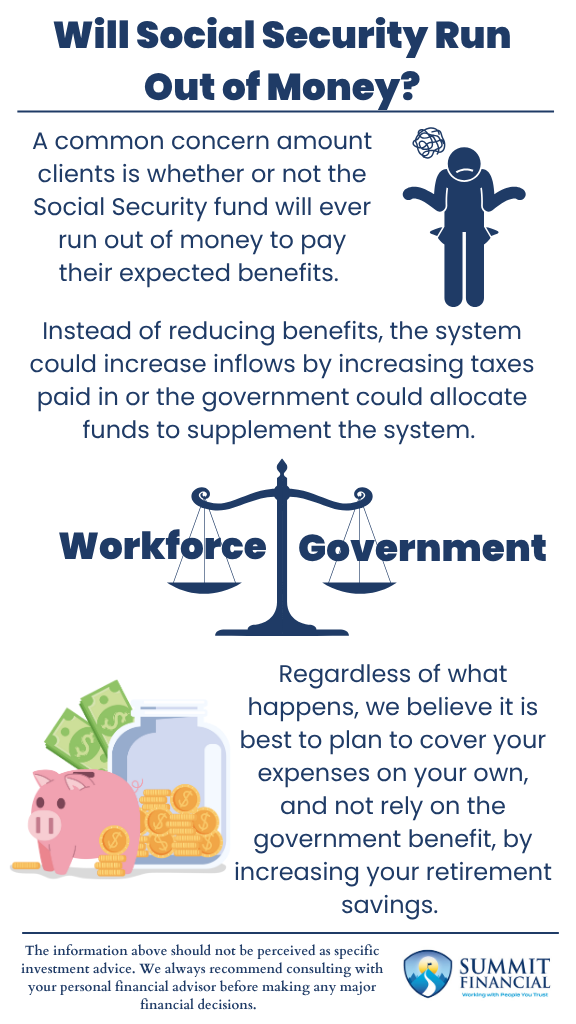A common concern among our clients, both young and old, is whether the Social Security Fund will ever run out of money. And if so, what will happen to the benefits that Americans are currently receiving or expect to receive at retirement? With the current forecasts, the Social Security fund may run out of money by 2034, or roughly 9 years from now (blog.ssa.gov).
This means that the government has less than a decade to figure out how to solve the impending cash flow issue. We believe they have a few options to consider, but getting things done through Congress is easier said than done.
Option 1: Reduce Benefits to Match Inflows
First, potentially the most straightforward option is to reduce the benefits that people receive once the fund is depleted. If the fund has run dry, the system would only be able to pay benefits with the current inflow from taxes. It is estimated that benefits could fall as much as 24% due to the level of inflows compared to the amount of outflows currently (money.usnews.com).
This could be a drastic event for those who rely heavily on their Social Security payments in order to fund their retirement expenses!
Option 2: Increase Inflows Through Higher Taxes
Instead of adjusting the outflows from the system, it is possible that they keep those at current levels and opt to increase the system’s inflows by raising the Social Security taxes paid by employees and employers (cbpp.org). The two primary options that we believe are available are increasing the percentage tax rate that employees and employers pay into the system, as well as increasing the income cap that this rate applies to. This would put the burden on the current workforce rather than decreasing the income for the retirees.
Another potential option to increase the system’s inflows would be to pass legislation allocating a portion of the government’s budget to funding the system, or possibly issuing more U.S. debt to raise funds for the system. Neither of these options are great in our opinion due to the consistent overspending and the ever-growing mountain of debt that is held by the U.S. government. This route would shift the burden to the U.S. government to supplementally fund the system, rather than relying on the current workforce.
Option 3: Limit Access for Future Workers
In our personal opinions, those who have paid into the system deserve to receive some sort of benefit for the cost that they have paid. If the Social Security fund were to be depleted, future workers might no longer be eligible for benefits at retirement. We think this would be a last resort option for the government to consider.
This means that those who have paid in would be entitled to benefits, but those who have not would not receive benefits. While this will certainly put a strain on the inflows for the system if we were to remove the SS taxation from the employee side, it would be a step towards moving away from this system if it is indeed on the verge of bankruptcy and is deemed unsustainable. No SS taxes would mean more money in the pockets of workers, allowing them to potentially save more for their own retirement and create their own income during retirement.
Consider Not Relying on Social Security
And that is one of the biggest considerations we could offer for those who are concerned about Social Security going bankrupt. We believe the best alternative option is not to rely solely on government-provided income and instead ensure that you save enough on your own to fund your retirement.
This could potentially mean reducing current expenses to save more per month. This could potentially mean focusing on longer-term growth investments, like the stock market, rather than keeping funds safe in a low-yielding savings account.
If you do not have a substantial amount saved and Social Security reduces its benefits, you may be forced to return to work to fund your current lifestyle. This may be the last thing retirees want to consider.
Key Takeaways: Will Social Security Run Out?
- A common concern amount clients is whether or not the Social Security fund will ever run out of money to pay their expected benefits.
- Instead of reducing benefits, the system could increase inflows by increasing taxes paid in or the government could allocate funds to supplement the system.
- Regardless of what happens, we believe it is best to plan to cover your expenses on your own, rather than relying on government benefits, by increasing your retirement savings.
Want Help Creating a Backup Plan?
If you have any questions about your investment portfolio, retirement planning, tax strategies, our 401(k) recommendation service, or other general questions, please give our office a call at (586) 226-2100. Please feel free to forward this commentary to a friend, family member, or co-worker. If you have had any changes to your income, job, family, health insurance, risk tolerance, or your overall financial situation, please give us a call so we can discuss it.
We hope you learned something today. If you have any feedback or suggestions, we would love to hear them.
Sincerely,
Zachary A. Bachner, CFP®
with contributions from Robert Wink, Kenneth Wink, and James Wink
Source List:



